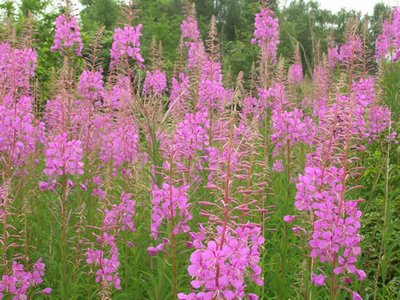A natural confession

I have a confession to make. Despite having a PhD in what used to be called botany (now 'plant sciences'), I'm rubbish at recognizing plants. If I watch an episode of Gardener's World, I'm bamboozled by all the technical terms. When I go for a walk in the countryside, I'm embarrassed at not being able to name the various species we come across.
The reason? I studied plant cells, and, more specifically, the cells of the first stages of growth of mosses, the protonema. I grew them in sterile culture on nutrient agar in Petri dishes. I then farted around with them a bit and looked at them under microscopes. I can give you a good lecture on plant physiology and cell biology, but I never got round to learning all those wonderful latin names of the sorts of plants you encounter on a walk through the woods.
Today, walking RTL, I encountered a beautiful stand of what look superficially like foxgloves, but which aren't (pictured). The interesting thing about the inflorescences here is that on each you have every stage of flower development, from budding to senescence, which is what you get with foxgloves. One of my PhD supervisors is an expert on flower senescence, and he did his PhD on foxgloves for this reason. Anyone know what the plant pictured here is? They're kind of like inverted wisterias, but pinker.
Labels: ramblings


4 Comments:
Looks like rose bay willow herb to me. I don't think you can make wine from it!
This post reminds me of how linguists (something I minored in in college) are expected to speak a multitude of languages. The study is a closer, more mechanical one than people often think. So don't be embarrassed!
It is indeed a rose bay willow herb. Just googled it.
Marcus, not too embarrassed, but it would be quite fun to be an old fashioned botanist. My other PhD supervisor used to go mossing - I remember driving to a meeting in Heidelberg, and whenever he say a promising habitat we'd have to stop the car, get out, and watch him rummaging around with his hand lens for half an hour. Would be great to have his level of expertise and interest in an element of the natural world.
Hi.
I think you'll find the plant in the picture is Purple Loosestrife.
Post a Comment
Links to this post:
Create a Link
<< Home